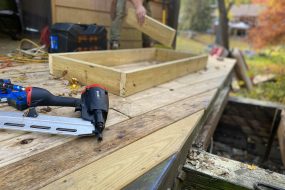In a world where food security and sustainable agriculture have become pressing concerns, the role of empowering communities cannot be overstated. By providing seeds, tillers, and essential tools, we can help transform lives and promote sustainable farming practices. This post outlines how these resources serve as vital lifelines for communities, enhancing local food production and contributing to economic stability.
The Importance of Seeds in Sustainable Agriculture
Seeds are the foundation of agriculture. They hold the key to food security and the sustenance of communities around the globe. By providing access to quality seeds, we can:
- Encourage Biodiversity: Different crops contribute to a diverse ecosystem, which is essential for soil health and pest management.
- Improve Crop Yields: High-quality seeds lead to better harvests, boosting local economy and food availability.
- Promote Nutrition: Diverse crops enhance dietary diversity, providing essential nutrients to communities.
Benefits of Accessible Seeds
When communities have access to various types of seeds, several benefits emerge:
- Empowerment: Farmers can grow crops that are culturally significant and suited to local conditions.
- Resilience: Diverse crops can withstand climatic variations, ensuring food security amidst environmental changes.
- Economic Growth: Surplus production can be sold, providing income and improving the local economy.
Understanding the Role of Tillers in Agriculture
Tillers are essential for preparing the land for planting, allowing farmers to cultivate more efficiently and effectively. The right tiller can:
- Reduce Labor: Mechanization of soil preparation saves time and physical effort.
- Enhance Soil Health: Proper tilling practices can improve soil aeration and structure.
- Maximize Crop Production: Well-prepared soil promotes better root development, resulting in healthier crops.
Types of Tillers and Their Impact
Different types of tillers exist, each serving unique purposes:
- Cultivators: Ideal for loosening the top layer of soil for seedbed preparation.
- Rotary Tillers: Equipped with rotating blades, these are effective for mixing soil and organic matter.
- Power Tillers: Perfect for smallholder farms, these machines make soil preparation easier for farmers with limited workforce.
Essential Tools for Effective Farming
Beyond seeds and tillers, various essential tools are necessary for successful farming. These tools empower farmers by:
- Simplifying Tasks: Basic tools make daily farming tasks more manageable.
- Increasing Efficiency: Whether it’s planting, weeding, or harvesting, having the right tools reduces effort and time.
- Enhancing Quality: Tools tailored for specific tasks ensure better outcomes in crop quality and yield.
Essential Farming Tools and Their Uses
Here are some vital tools that can dramatically enhance farming efficiency:
- Hand Tools: Items like hoes, shovels, and rakes are foundational for small-scale farming.
- Seed Drills: These can significantly improve planting efficiency and ensure even soil coverage.
- Weeders: Essential for maintaining soil health and preventing weed competition with crops.
- Harvesting Tools: Tools like sickles and shears ensure efficient harvesting processes.
Community Initiatives Focused on Agricultural Empowerment
Several organizations and community initiatives have recognized the importance of empowering agriculture through seeds, tillers, and essential tools:
- Seed Banks: Community-based seed banks promote the sharing and preservation of local crop varieties, enhancing biodiversity.
- Training Workshops: Educational programs equip farmers with knowledge on the best practices for seed selection, tilling methods, and tool maintenance.
- Sustainable Farming Programs: Initiatives that advocate for organic practices and permaculture create sustainable agricultural ecosystems.
Real-World Examples of Success
Several organizations have successfully implemented programs that empower communities:
- Heifer International: This organization works globally to provide livestock, seeds, and training, transforming communities through sustainable agriculture.
- The Seed Savers Exchange: This network helps preserve heirloom seeds and promotes community-based gardening initiatives.
- Farmers’ Cooperatives: These cooperatives pool resources to purchase equipment and seeds, allowing smallholder farmers to thrive.
Encouraging Sustainable Practices in Agriculture
Beyond providing resources, promoting sustainable practices within communities is crucial. Here are some strategies to encourage sustainability:
- Education: Teach farmers about the importance of crop rotation, organic fertilizers, and reducing chemical inputs.
- Community Gardens: Establish communal spaces where people can practice sustainable techniques and share knowledge.
- Mentorship: Pairing experienced farmers with newcomers fosters a culture of knowledge-sharing and innovation.
The Future of Community Empowerment in Agriculture
Looking ahead, the integration of technology with traditional farming practices will play a vital role in empowering communities. Innovations such as:
- Precision Agriculture: Using data analytics and sensors to optimize planting and watering strategies.
- Mobile Applications: Providing farmers with real-time weather updates, market information, and best practices.
- Renewable Energy Solutions: Incorporating solar-powered tools and irrigation systems to enhance sustainability.
Conclusion: The Path Forward
Empowering communities with seeds, tillers, and essential tools is not just about providing resources; it’s about creating a foundation for sustainable development, economic growth, and improved quality of life. By working collectively, we can turn these tools into a means of transformation, enabling communities to harness the full potential of their agricultural endeavors.
Join us in supporting these initiatives and fostering a more sustainable and food-secure future for all!










